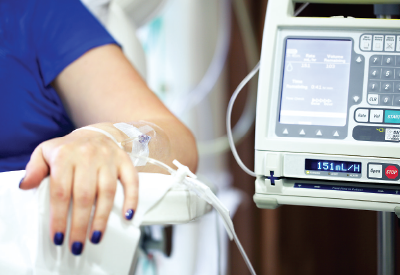Despite the lack of long-term data or FDA approval for psychiatric use, ketamine treatment for mental disorders is offered by a variety of physician specialists in numerous geographic locations, according to a survey by several prominent ketamine researchers. The results of the survey were published July 1 in a letter to the American Journal of Psychiatry.
The researchers cited an urgent need for more research on the use of ketamine for psychiatric disorders in clinical settings to establish evidence-based regimens and safety of long-term use.
The increasing use of ketamine to treat psychiatric disorders and the potential adverse effects of repeated dosing make a good argument for the establishment of a registry to follow psychiatric patients who receive ketamine, according to study investigators.
Reporting the survey results were Samuel T. Wilkinson, M.D., of the Yale Depression Research Program in New Haven, Conn.; Mesut Toprak, M.D., a researcher in the Department of Psychiatry at Yale University; Mason S. Turner, M.D., director of Outpatient Mental Health and Addiction Medicine for Kaiser Permanente, Northern California; Steven P. Levine, M.D., psychiatrist and president/CEO of Ketamine Treatment Centers in Princeton, N.J.; Rachel B. Katz, M.D., chief resident of the Yale University Interventional Psychiatry Service; and Gerard Sanacora, M.D., Ph.D., a professor of psychiatry and director of the Yale Depression Research Program.
From September 2016 through January 2017, researchers sent a web-based survey to 76 physicians nationwide inquiring whether their clinical practices use ketamine for psychiatric disorders. Responses were received from 57. Targeted individuals were identified through a systematic web search for sites advertising ketamine treatments for depression and through the authors’ relationships with academic and community colleagues.
The most commonly reported diagnosis treated was major depressive disorder (72.2 percent), followed by bipolar disorder (15.1 percent) and posttraumatic stress disorder (5.7 percent). Most respondents (87.7 percent) reported administering ketamine intravenously, with a minority reporting using an oral (22.8 percent) or an intranasal (19.3 percent) formulation.
Among respondents reporting intravenous administration, 44 percent reported using a dosage of 0.5 mg/kg infused over 40 to 45 minutes, the typical dosage in most research protocols; a minority reported using a range of dosages between 0.5 and 1.0 mg/kg (12.0 percent) or between 0.5 and 3.0 mg/kg (14.0 percent).
Approximately one-half of the respondents reported monitoring heart rate (48.1 percent) and pulse oximetry (54.0 percent) at least every 5 minutes during the infusion, with 25.9 percent monitoring blood pressure at least every 5 minutes. Most reported monitoring heart rate (77.8 percent), pulse oximetry (80 percent), and blood pressure (75.9 percent) at least every 15 minutes during the infusion. Few respondents reported no monitoring of heart rate (1.9 percent), pulse oximetry (10 percent), and blood pressure (1.9 percent).
Most respondents (89.5 percent) reported offering ketamine on a continuation or maintenance basis (defined as greater than one month). The average frequency of maintenance treatments reported were monthly (29.8 percent), once per three weeks (21.1 percent), once per two weeks (12.3 percent), or less than monthly (15.8 percent). Respondents reported that 64 percent of patients paid for the ketamine treatment out of pocket, with 23 percent of patients having a portion of the cost reimbursed by insurance and 13 percent of patients having other payment structures.
Most (73.7 percent) respondents worked in private practice, with a minority in academic settings (14.0 percent) or in health maintenance organizations (8.8 percent), with a regional distribution as follows: West Coast (31.6 percent), Northeast (19.3 percent), Southeast (15.8 percent), Mountain West (10.5 percent), Mid-Atlantic (10.5 percent), and Midwest (8.8 percent). Most (66.7 percent) respondents were trained in psychiatry, with others trained in anesthesiology (22.8 percent), emergency medicine (3.5 percent), or family medicine (3.5 percent). Most respondents (73.7 percent) administered ketamine in an office-based setting, with a minority (21.1 percent) administering ketamine in a hospital-based setting or in a surgical or procedural suite.
The majority of respondents reported starting to provide ketamine for psychiatric disorders relatively recently, with a notable increase in the cumulative number of such providers since 2012. ■
“A Survey of the Clinical, Off-Label Use of Ketamine as a Treatment for Psychiatric Disorders” can be accessed
here. The letter lists the authors’ financial interests.

